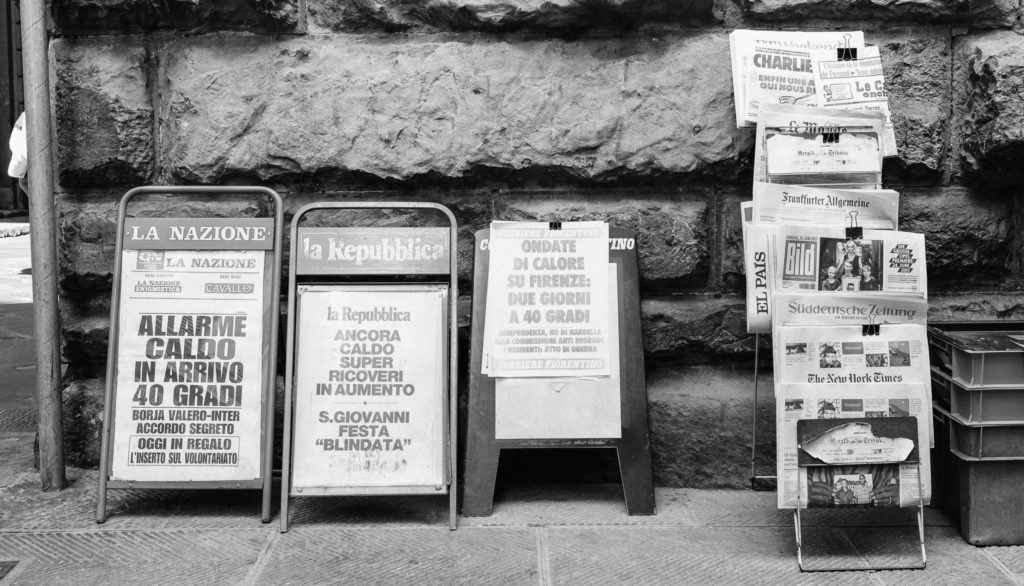May 16 marks the 55th World Communications Day, the only one since the Second Vatican Council. In the Message written for the occasion, Pope Francis draws inspiration from Jesus' invitation to the disciples "Come and see" (Jn 1:46), and insists that in order to communicate, it is necessary to meet people where they are and how they are.
In little more than half a century of social communication, the information landscape has changed completely, and with it the journalistic profession, which today is crushed by the disintermediation and the infodemiaThese are terms that, if not taken in their proper dimension, can distract attention from the real problem. And that is: the responsibility of each professional to do his or her job well.
First of all, we must always ask ourselves about the ethical impact of the journalistic profession, in particular the "reader service" character that characterizes it, despite - and perhaps even more so - in the era of global and disintermediated communication.
The infodemic belongs to us
Regarding the term "infodemia"which has been very much in vogue in recent months, even more so because of the pandemic we are experiencing, if we look back in time and study the different processes of media culture that have taken place, we realize that the term had already been coined in 2003 by journalist David J. Rothkopf in an article in the Washington Post. It was the first months of the spread of SARS (the younger sister of "our" Covid-19) and the author described the term as "a complex phenomenon caused by the interaction of traditional media, specialized media, Internet sites and so-called informal media", the latter identified as cordless phones, text messages, pagers, faxes and e-mails.
As we can see, there is nothing new, except for the fact that the protagonists of this phenomenon are always people, both as "feeders of chaos" and as somewhat voracious and often distracted consumers. Certainly, the social has increased, and Covid-19 has tragically plunged us back into something that perhaps we should have looked at more carefully. This confirms that the key to "fixing" what is wrong is not in the processes - which are taken for granted - but in the people. From there we have to start again, or simply begin again.
A personal work
Faced with a hyper-connected society, it would be a real shame - a real impoverishment - not to take advantage of the amount of possibilities that this world offers us, starting with the tools to know how to distinguish what is good for our existence from what limits it. As you can see, this is a job that belongs to each individual and cannot be delegated to some "other organism", as if it were hidden somewhere in the ether, which then, at best, is just an empty container or the landing place of misguided expectations.
Risks are part of life, but they must be faced, managed, governed and accompanied. No individual can escape this need - and task - to choose for himself what is good for him (and for others). And this is called freedom.
Journalists are people like everyone else, immersed in the complexity of today's world like each of us. It is neither useful nor productive to throw stones at one category rather than another. But it is undeniable that a general examination of conscience must be made, taking into account the complexity of the situations and the global panorama we are experiencing.
Complex answers to complex problems
Complex problems require complex answers, so the time has come, like good "mechanics", to go first to identify the faults that make society's "engine" impracticable, and repair the broken components piece by piece. It is a task that falls to everyone, from the information and communication operator to the ordinary citizen, from educational organizations to politics, from the Church to all the other organizations that operate in society. It is a complex task, a global task, a task that cannot be postponed. But it is also the best challenge we can face, to give meaning to our lives.
Do not settle
So a piece of advice for young people: never settle! Don't settle for study, for the desire to understand reality, for the possibilities of offering those who receive the fruits of our labor. There is no single model of communication, just as there are no uniform individuals.
Each of us is unique and communication "to the world" must start from the awareness that there is not just one aspect to take into account, but a complexity of elements.
A good communicator is the one who feels at ease in this complexity, rather than uncomfortable, and tries by all means to intercept the individual causes that lead to outline the overall design of people's lives. Best wishes.









